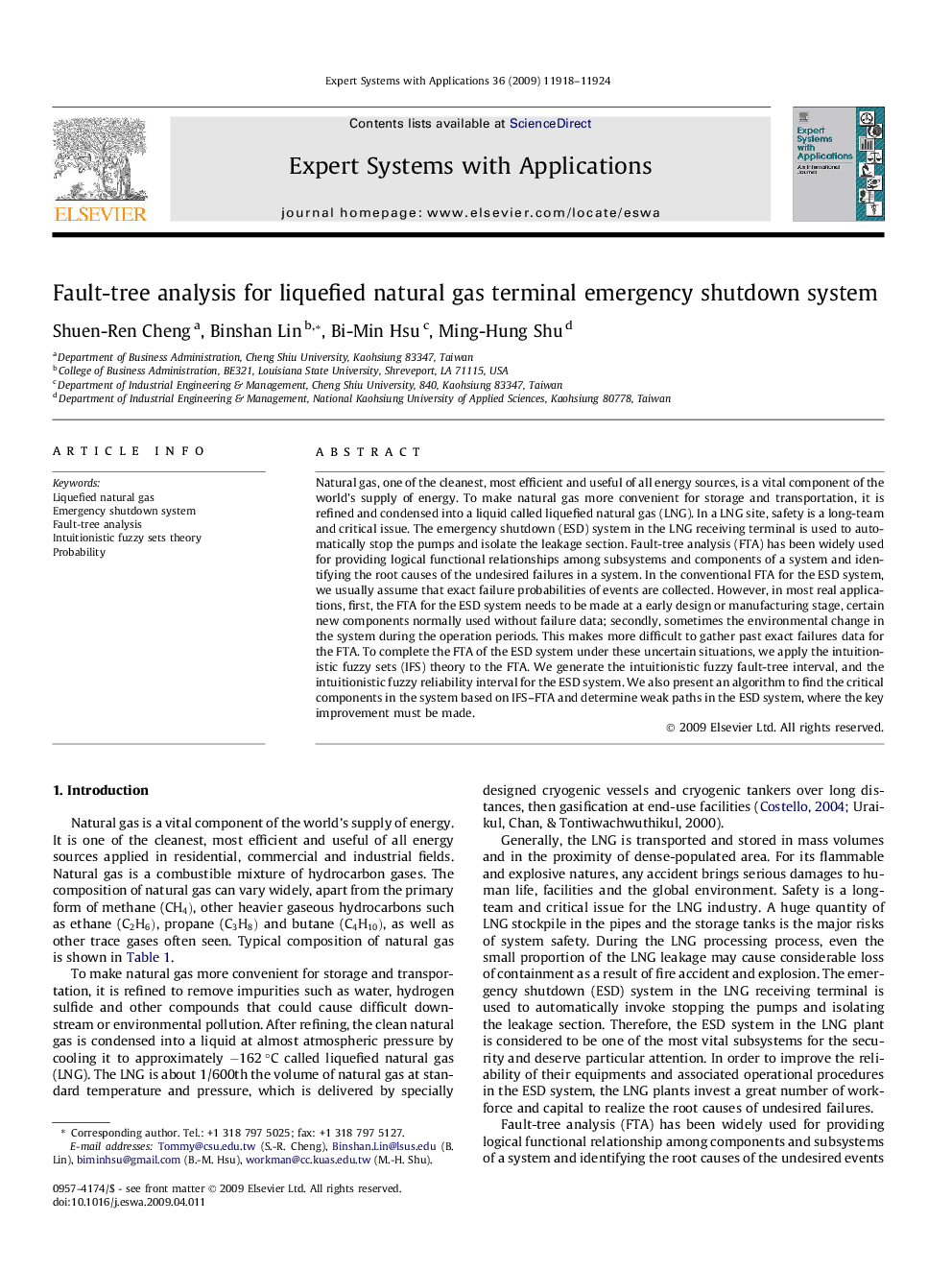| کد مقاله | کد نشریه | سال انتشار | مقاله انگلیسی | نسخه تمام متن |
|---|---|---|---|---|
| 386677 | 660889 | 2009 | 7 صفحه PDF | دانلود رایگان |

Natural gas, one of the cleanest, most efficient and useful of all energy sources, is a vital component of the world’s supply of energy. To make natural gas more convenient for storage and transportation, it is refined and condensed into a liquid called liquefied natural gas (LNG). In a LNG site, safety is a long-team and critical issue. The emergency shutdown (ESD) system in the LNG receiving terminal is used to automatically stop the pumps and isolate the leakage section. Fault-tree analysis (FTA) has been widely used for providing logical functional relationships among subsystems and components of a system and identifying the root causes of the undesired failures in a system. In the conventional FTA for the ESD system, we usually assume that exact failure probabilities of events are collected. However, in most real applications, first, the FTA for the ESD system needs to be made at a early design or manufacturing stage, certain new components normally used without failure data; secondly, sometimes the environmental change in the system during the operation periods. This makes more difficult to gather past exact failures data for the FTA. To complete the FTA of the ESD system under these uncertain situations, we apply the intuitionistic fuzzy sets (IFS) theory to the FTA. We generate the intuitionistic fuzzy fault-tree interval, and the intuitionistic fuzzy reliability interval for the ESD system. We also present an algorithm to find the critical components in the system based on IFS–FTA and determine weak paths in the ESD system, where the key improvement must be made.
Journal: Expert Systems with Applications - Volume 36, Issue 9, November 2009, Pages 11918–11924